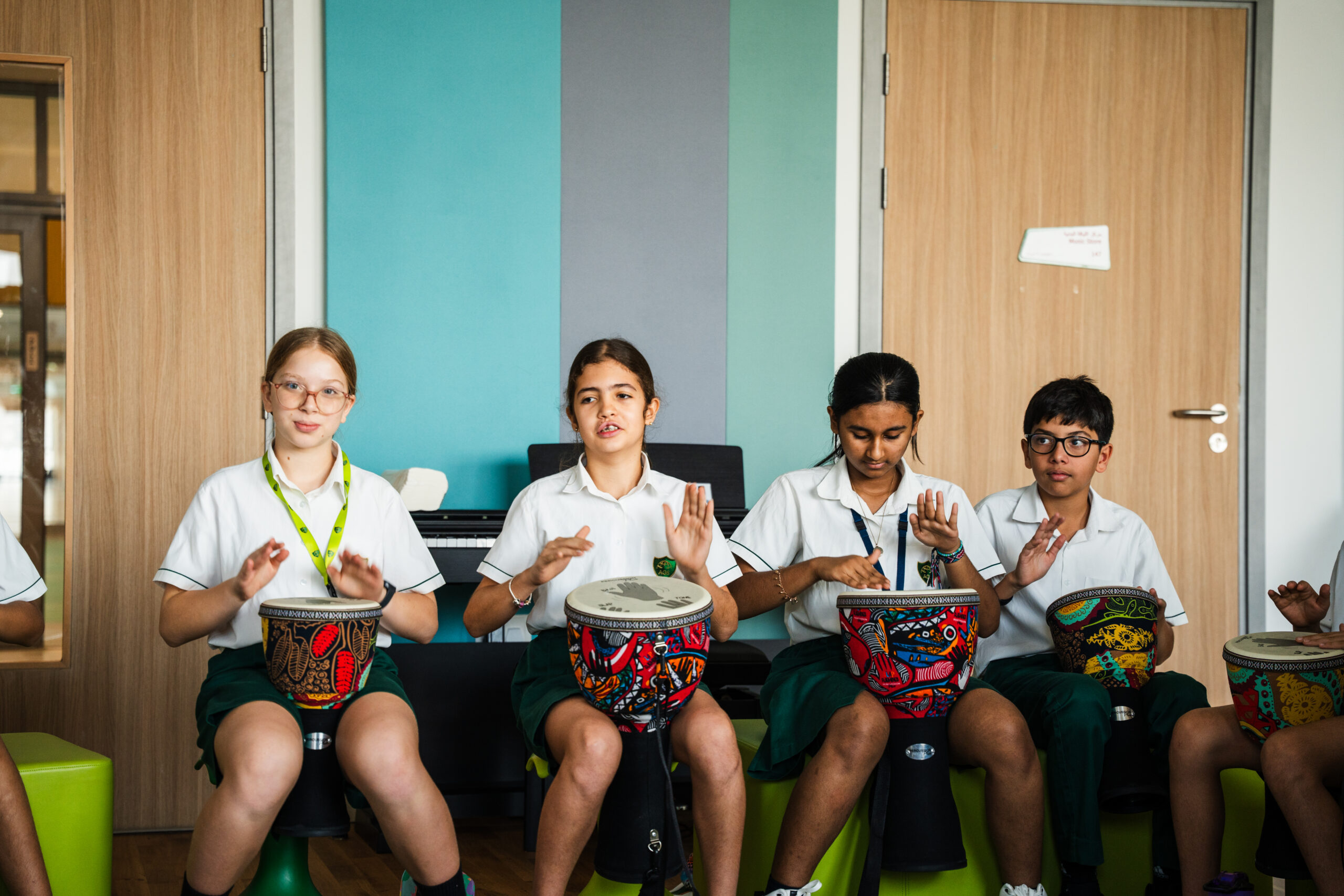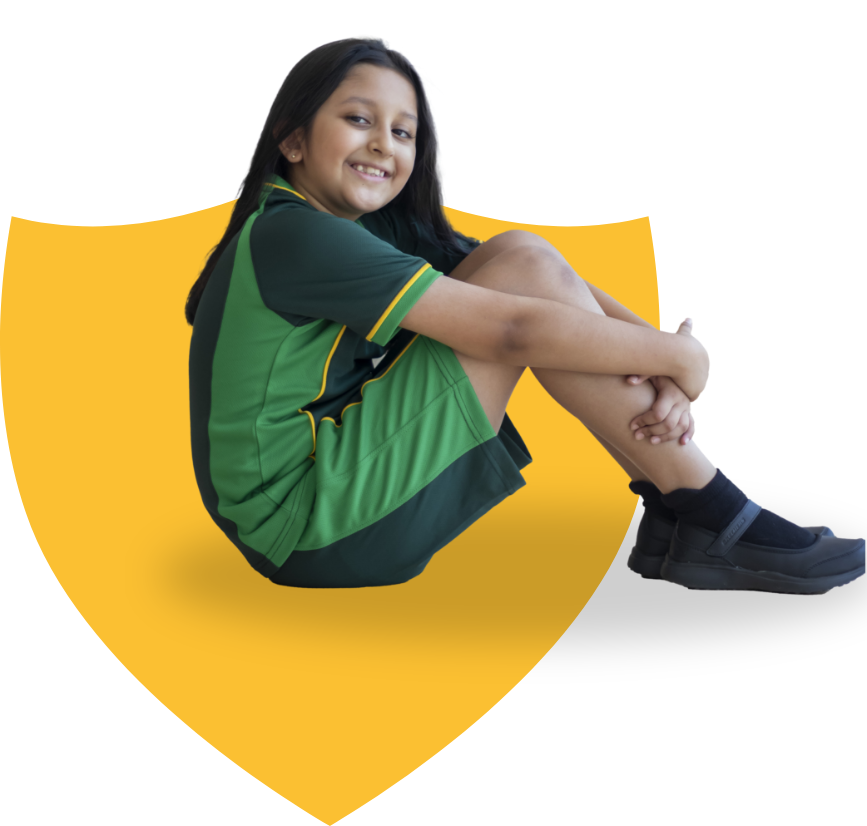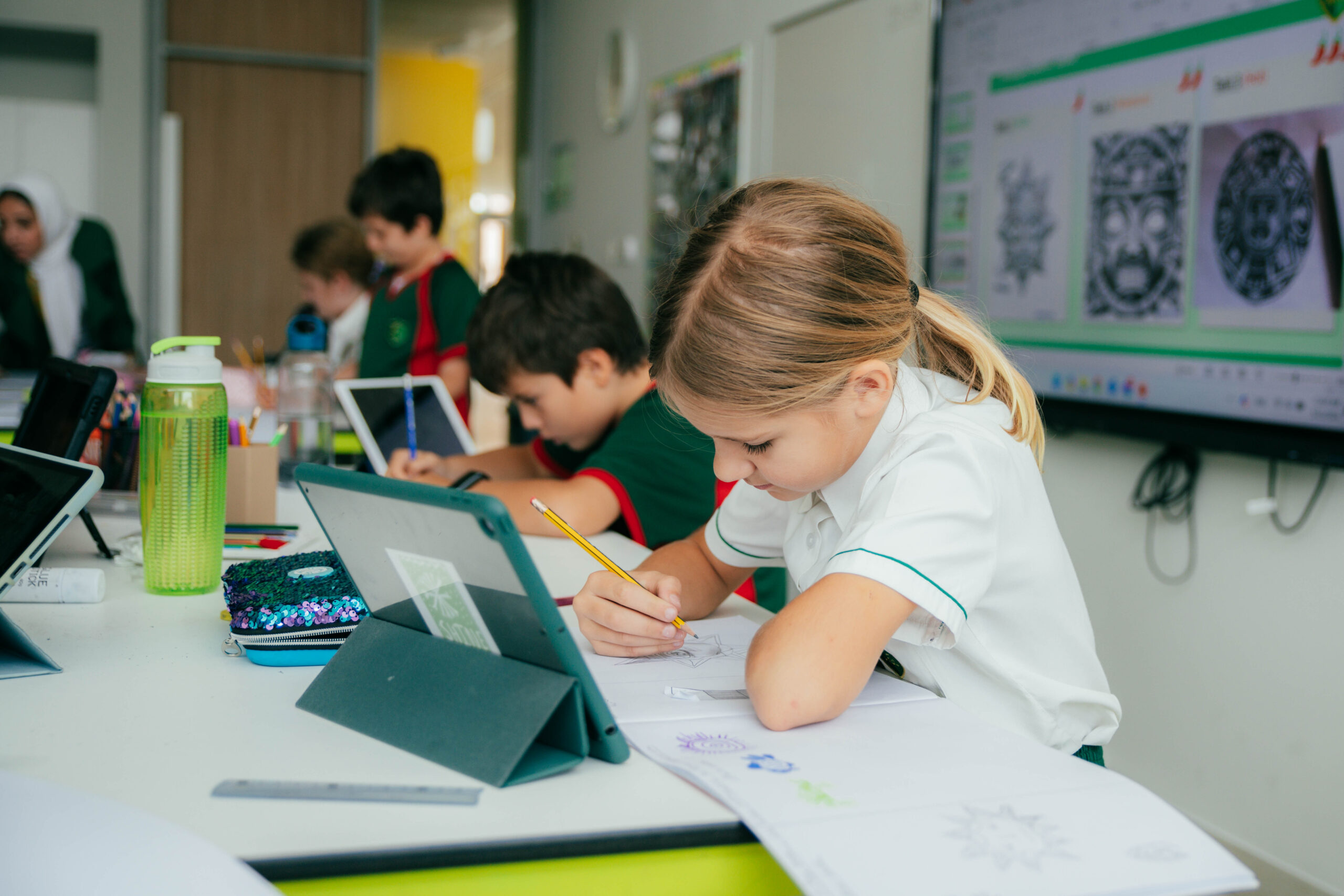
Primary
British Curriculum Schools in Dubai
At Arcadia Global School, we are committed to delivering a modern, broad, and enriched learning programme to our students. Our approach, as one of the leading British curriculum schools in Dubai, is based on three core components
Delivery of the new National Curriculum for England
- Early Years framework for Foundation Stage
- The National Primary Curriculum for England for Years 1 to 6
In-school provision of enriched learning opportunities
- Early Years Explorers (EYE) programme, an experiential, hands-on approach to learning for our young students
- Enrichment Learning Programme (ELP), extended learning experiences for Years 1 and older, based on an extended school day
IT Enhanced Learning
- Online systems for sharing student learning and supporting parental collaboration
- Microsoft platforms for Education








